Borrowing Virginia Woolf’s words pertaining to the entire realm of literary creation, “Anonymous Was a Woman” represents an effort to introduce audiences to a broad range of female composers throughout the ages. From the time of the ancient Greeks to our day, women have contributed to the musical life of humanity, not only as performers but as composers. This program shines a light on these underrepresented and often ignored artists. We hope you enjoy our thumbnail profiles of some of these composers!

Florence B. Price
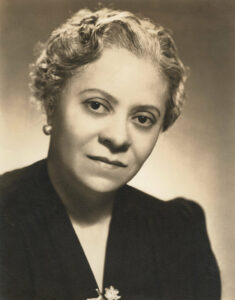
FLORENCE B. PRICE
Florence B. Price (1887-1953) was the first African-American woman composer to earn national recognition In the United States. While she helped define America’s voice in classical music with its neo-Romantic style, her music was influenced by her cultural heritage with folk and spiritual elements revealing her Southern roots. Unfortunately, racism and gender inequality resulted in what Price’s biographer, Rae Linda Brown, calls an “Invisible Woman.” Largely thanks to the discovery of many of her manuscripts in 2009, her music is enjoying a renaissance. The Nashville Symphony recently performed Price’s Piano Concerto in One Movement on its “Trailblazing Women” concert series.
Vox Grata will perform “The Moon Bridge,” one of many of Florence Price’s art songs.
Ysaye Barnwell
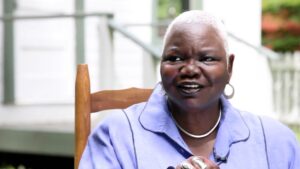
YSAYE BARNWELL
Ysaye Barnwell (1946 – ) joined Sweet Honey In The Rock in 1979 and remained a vocalist and instrumentalist in the group for thirty-four years. She performed on more than thirty recordings with the ensemble. Since retiring from the group, she has served as a master teacher and choral clinician in African-American cultural performance around the world. Her workshops inspire singers and educators, cultural activists and historians. She has also been commissioned as a composer for numerous choral, film, video, dance and theatrical projects.
Vox Grata will perform “On Children” on a Khalil Gibran text of the same name.
Mari Esabel Valverde
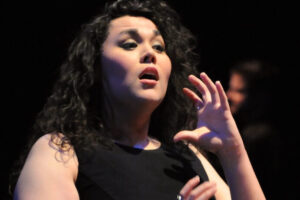
MARI ESABEL VALVERDE
Mari Esabel Valverde (1987 – ) is an award-winning composer whose music has been commissioned and performed by some of the most prestigious choirs and organizations in the United States including the Los Angeles Master Chorale, Cantus, Seattle Pro Musica and the American Choral Directors Association, to name a few. She has also built a reputation as a singer, educator and adjudicator, having sung with EXIGENCE Vocal Ensemble and Dallas Chamber Choir. She holds degrees from St. Olaf College, the European American Musical Alliance in Paris, France and the San Francisco Conservatory of Music. She has extensive transgender voice training and is proficient in several languages.
Vox Grata will perform Valverde’s exquisite treble choir arrangement of Ernest Chausson’s solo art song, “Le Colibri.”
Hildegard
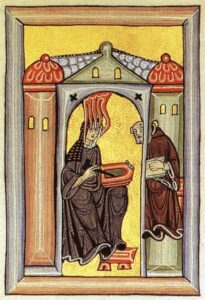
HILDEGARD
Hildegard of Bingen (1098 – 1179) was a German, visionary mystic, abbess, poet and composer. She wrote lyric poems, each with a musical setting of her own, often based upon her visions and religious insights. Eventually canonized by Pope Benedict XVI, she is considered a patron saint of musicians and writers. Her music takes the form of sacred chant. Recent interest in her music has resulted in numerous modern recordings. Her morality play “Ordo Virtutum (Play of the Virtues) contains eighty-two songs and is thought to be the earliest surviving non-liturgical musical drama. It would have been performed within her own monastery by nuns and noblewomen. Hildegard also composed many liturgical songs, always consisting of only one melodic line. Her style is characterized by soaring melodies, more daring than traditional Gregorian chant.
Vox Grata will perform Hildegard’s antiphon “O Pastor Animarum.”
Chiara Margarita Cozzolani
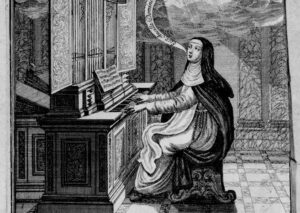
CHIARA MARGARITA COZZOLANI
Chiara Margarita Cozzolani (1602 – 1678) is one of three female composers we will feature from the Italian Baroque tradition. Each composed for the convent in which they resided. Cozzolani was cloistered in a Milanese convent where she eventually served as prioress and abbess. Her music was often performed by the nuns on major religious feast days, attracting visitors from outside the convent walls. In fact, the monastery at St. Radegonda in Milan seems to have had some of the finest musicians in Milan. Cozzolani’s vocal works contain demanding vocal parts that would have only been sung by accomplished singers.
Vox Grata will perform “Regna terrae, cantate Deo” which includes several virtuosic vocal solo sections. Instrumentalists from Music City Baroque will provide accompaniment typical of the Baroque era.

